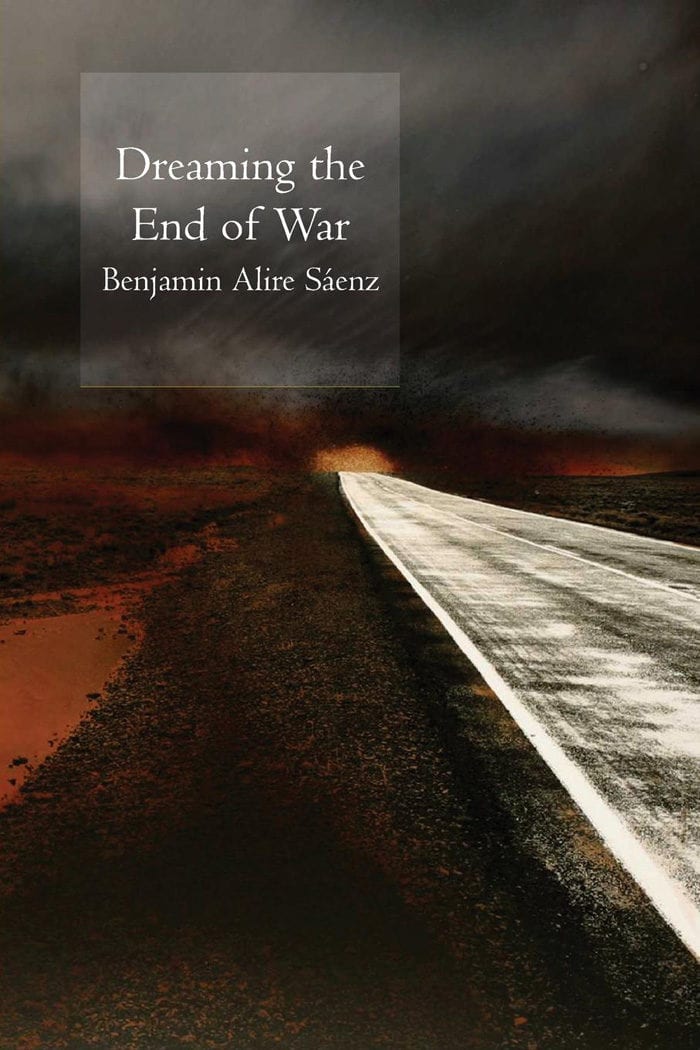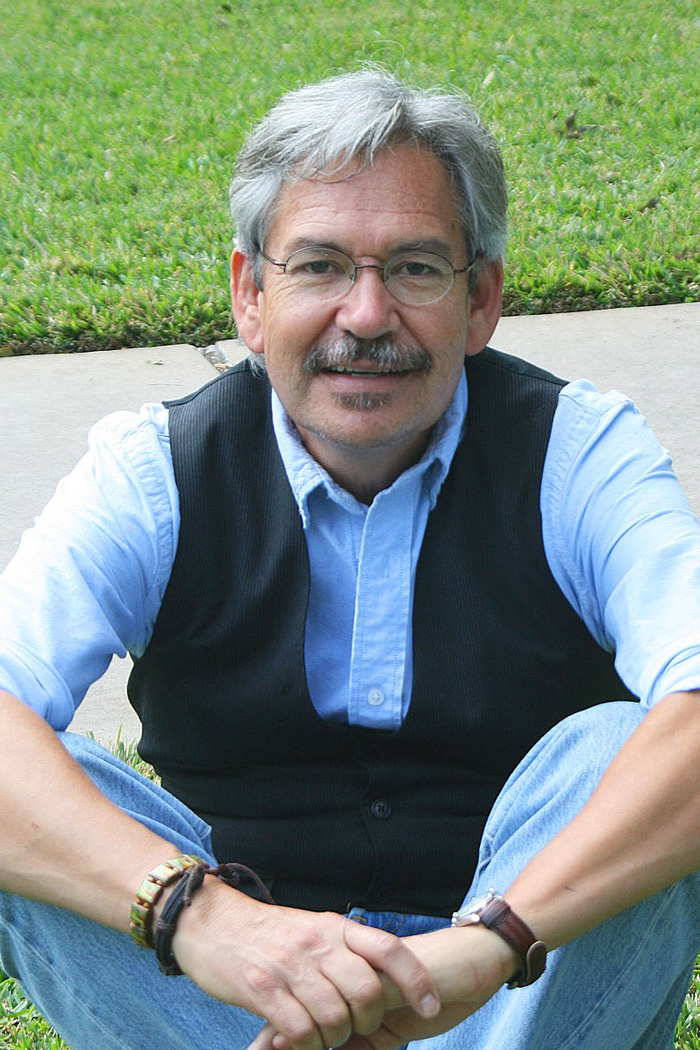
This gripping suite of twelve dreams, infused with the conflict along the border of Mexico and the United States, traces humanity’s addiction to violence and killing–from boys stepping on ants to men shooting animals, men shooting women, men shooting enemies. The dreams begin in a desert landscape where poverty and wealth grate against each other and the ever-present war becomes “as invisible as the desert sands we trample on.” The dreams, however, move toward a greater peace, with Sáenz providing an unforgettable reading experience.
ISBN: 9781556592393
Format: Paperback
Reviews
“Sáenz’s Dreaming the End of War is perhaps most directly relevant to our current moment. A former Catholic priest, this poet creates prayerful verse that is at once mystical and utterly human. In a series of “dreams,” he investigates the very origins of human conflict: These meditations, which take place in the stark desert borderland between Mexico and the United States (in turn a metaphor for the borders between consciousness and unconsciousness and the corporeal and spiritual worlds), posit a primal tendency to divide ourselves. Sáenz also crosses the boundary between the personal and the political, recognizing in his own experiences the seeds of violence that he so abhors in US government policies.” —Washington Post
“… an effort by a loving, caring, troubled poet to understand the violence surrounding our lives and ultimately to find a way to cross the ever-present border between violence and peace and arrive as a new immigrant.” —Oklahoma Observer
“He is a writer of generosity, vision, and honesty.” —Harvard Review
“His strength lies in the thoughtful way he probes the roots of war, both in himself and others.” —Harvard Review
“It is this self-examination that makes Dreaming the End of War rise to a visionary level, through the dream and the language.” —Cincinnati Review
“Sáenz lives along the United States-Mexican border in El Paso, and his angry recognition of the brutality among humans who perceive and fear differences is palpable. In the face of all the killing of innocent animals and other victims, of all the hate and war and incessant turmoil, hope doesn’t make sense, he implies. Yet, in the guise of his beloved dog, hope bears him across the final river… This relatively short work is a riveting meditation, both deep and simple, worth reading and rereading, just as suitable for high school students as for more scholarly audiences.” —Texas Books in Review
“Sáenz wants people to see peace as a vision… By sharing images from the speaker’s life in the war between cultures, Sáenz makes the case that only dreams originating from lives fully lived may be able to end war. We must first dream peace so that it becomes part of our vision for the future, and then we can move toward peace. This is a powerful book…” —Western American Culture
“Sáenz took me on a gripping twelve-part vision quest that awakens hope as much as it incriminates human nature. Only a bold seer would dare to dream of things the world has never seen.” —Rattle
